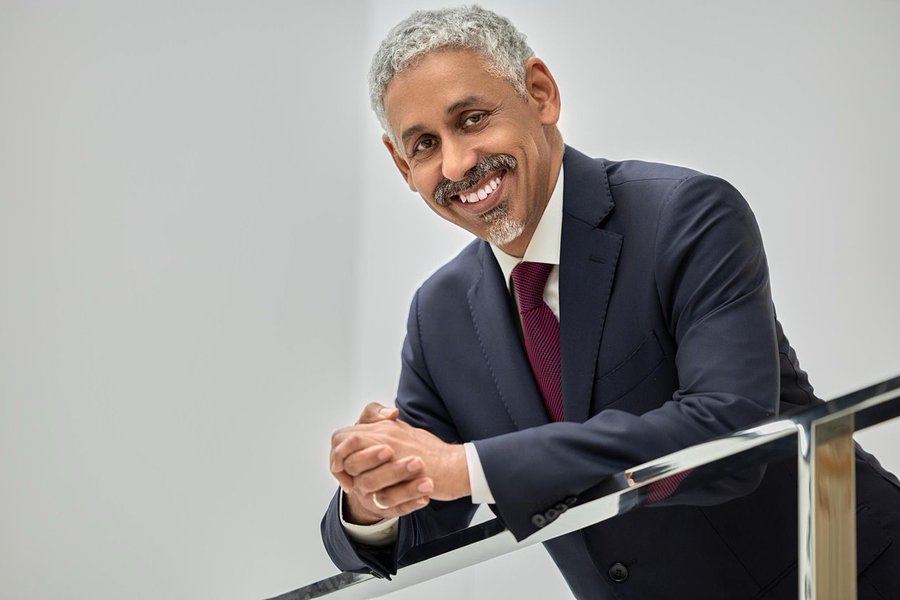Mauritania’s former Minister of Economic Affairs, Sidi Ould Tah, has been elected the new President of the African Development Bank (AfDB).
He succeeded Nigeria’s Akinwumi Adesina after nearly a decade of leadership.
Tah announced this in a statement posted on his X page on Thursday, describing his emergence as president as the start of a challenging yet inspiring journey.
“I am humbled and honored to be elected President of the AfDB. I extend my deepest gratitude to all who supported me – regional and non-regional members of the Bank and the leaders and countries that they represent.
READ ALSO: AfDB President Adesina bows out after ten years of reforms
“This marks the beginning of a challenging yet inspiring journey—together, we will drive Africa’s transformation with unity, ambition, and purpose”, he wrote.
Tah, 60, clinched the top position after just three rounds of voting—far fewer than the six rounds required when Adesina was elected in 2015.
He received 76.18% of total votes, comfortably surpassing his closest rival, Zambian economist Samuel Munzele Maimbo, who garnered 20.26%. Senegal’s Amadou Hott followed with 3.55%.

To win the presidency, candidates must secure dual majorities: one from all 81 member states and another from the 54 African countries within the bank.
Tah achieved 72.37% of the African vote.
A seasoned development expert, Tah has served for a decade as the Director-General of the Arab Bank for Economic Development in Africa (BADEA).
His extensive experience in pan-African financial diplomacy, especially between North Africa and sub-Saharan Africa, is expected to aid his transition into the AfDB’s top job.
Reacting to the outcome, Maimbo congratulated his opponent and reiterated his hopes for the continent.
“My candidacy was inspired by a deep commitment to Africa’s future. I respect the decision of the Governors and wish Dr Tah every success,” he said in a post-election statement.
During his campaign, Tah pledged to focus on deepening Africa’s financial autonomy, boosting regional development institutions, investing in climate-resilient infrastructure, and leveraging demographic trends to accelerate economic growth.
His election comes at a challenging time for the AfDB. The institution is grappling with global economic uncertainties and a potential $500 million funding cut from the United States—amid policy shifts introduced by the Trump administration.
These funds were critical to supporting projects in some of the continent’s poorest countries.
The AfDB, created in 1964, is among the largest multilateral lenders globally.
It draws financial strength from member contributions, borrowings from international markets, and returns on existing investments.
All five contenders for the presidency committed to continuing the transformative agenda launched by Adesina, built on five priority pillars: providing electricity, food security, industrialisation, regional integration, and improving living standards.
The New Daily Prime reported on Tuesday that Adesina in farewell speech reflected on his tenure with pride and highlighted major accomplishments.
The achievements includes extending access to electricity for millions, funding Africa’s largest wastewater treatment facility in Egypt, and supporting infrastructure such as the Senegambia Bridge, Togo’s expanded port in Lomé, and sanitation systems in Lesotho.
According to Adesina, more than 565 million people directly benefited from AfDB projects during his administration. Under his leadership, the bank’s capital base expanded from $93 billion in 2015 to $318 billion by 2025.
READ ALSO: Adesina-led SDP denounces coalition moves to unseat Tinubu
“We’ve created an institution that is globally respected and remains committed to Africa’s advancement amid fast-evolving economic and geopolitical realities,” Adesina said.
Tah assumes office, expectations are high that he will build on this legacy and steer the AfDB through its next phase of growth and reform.


